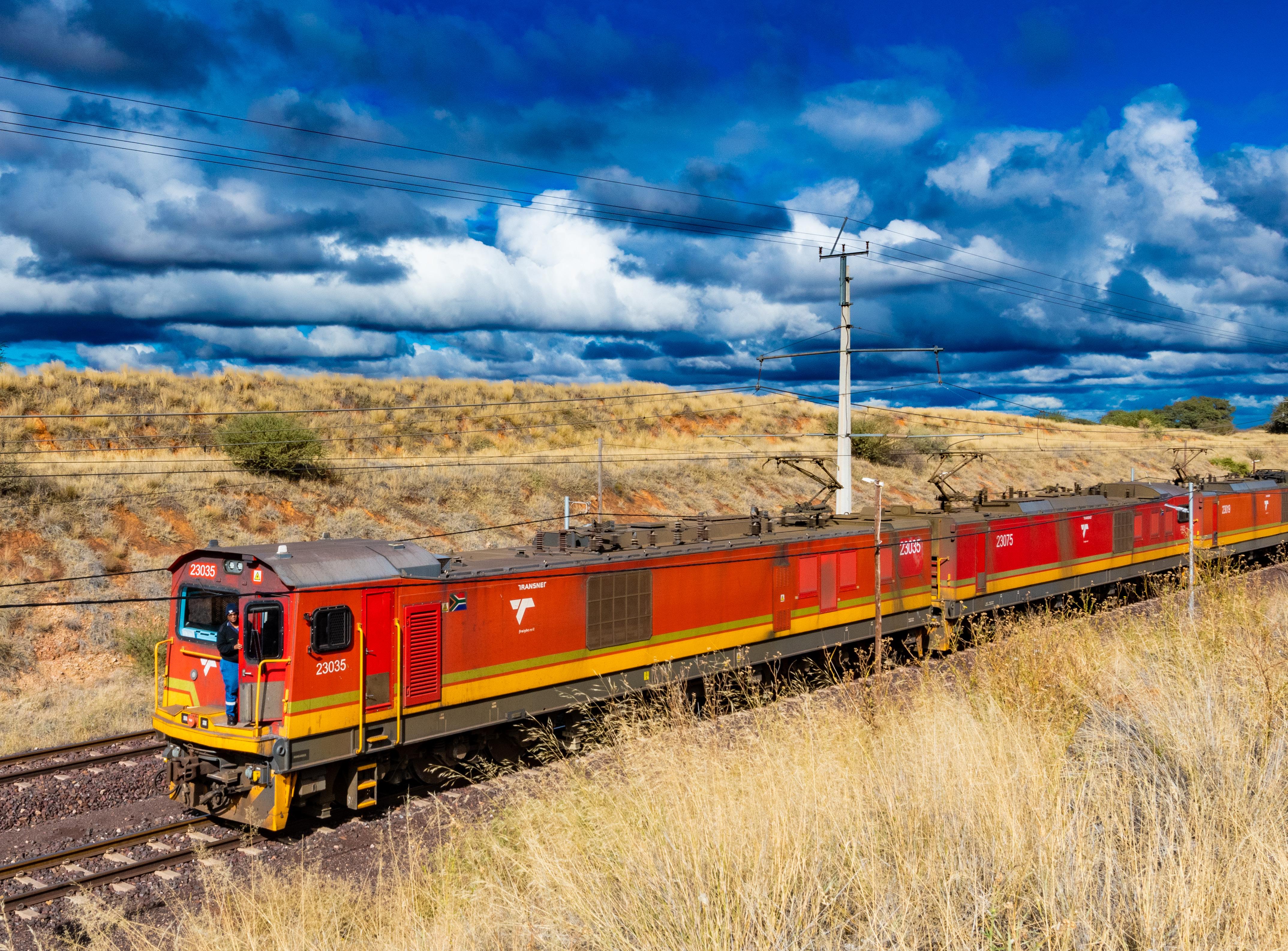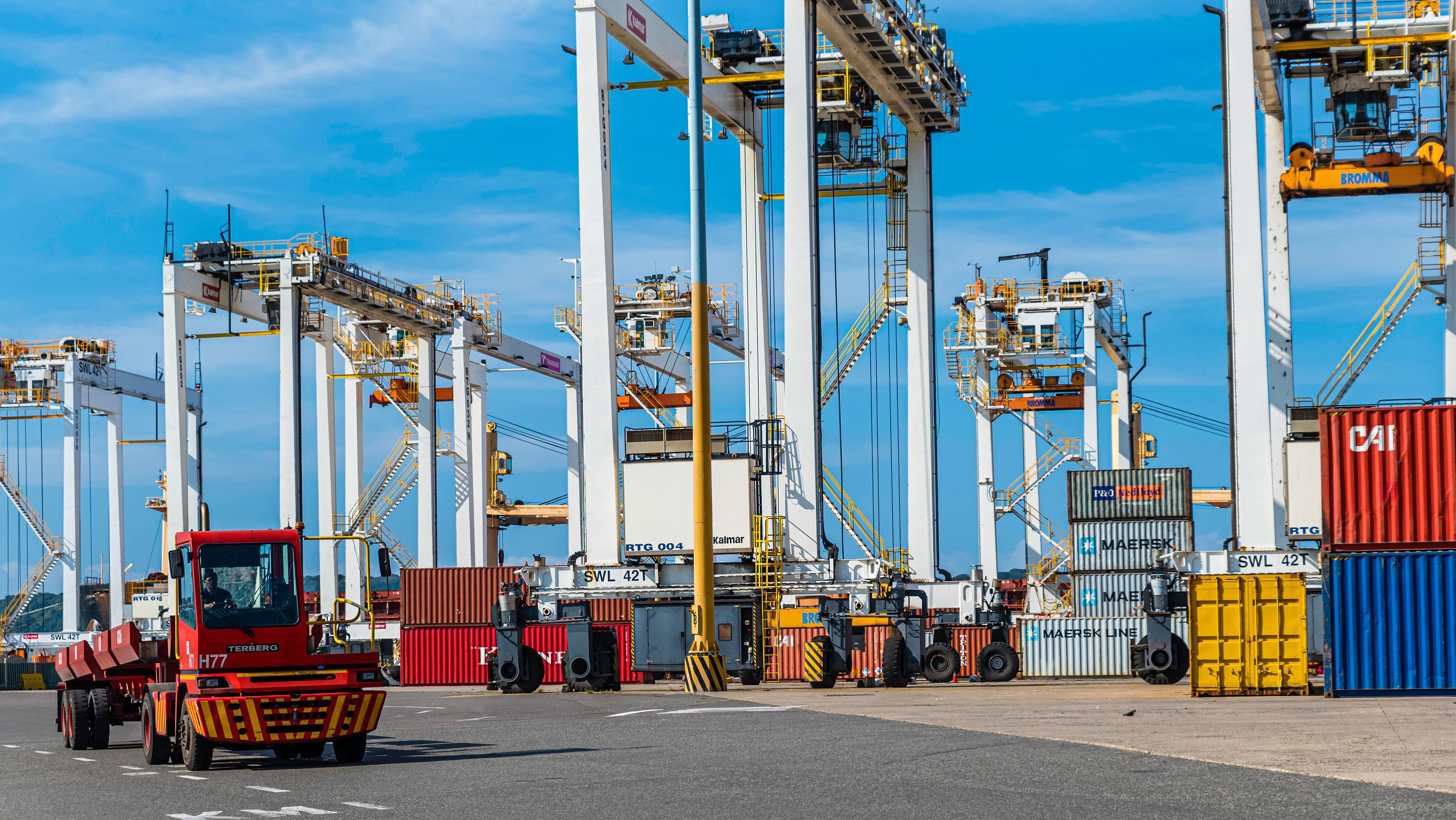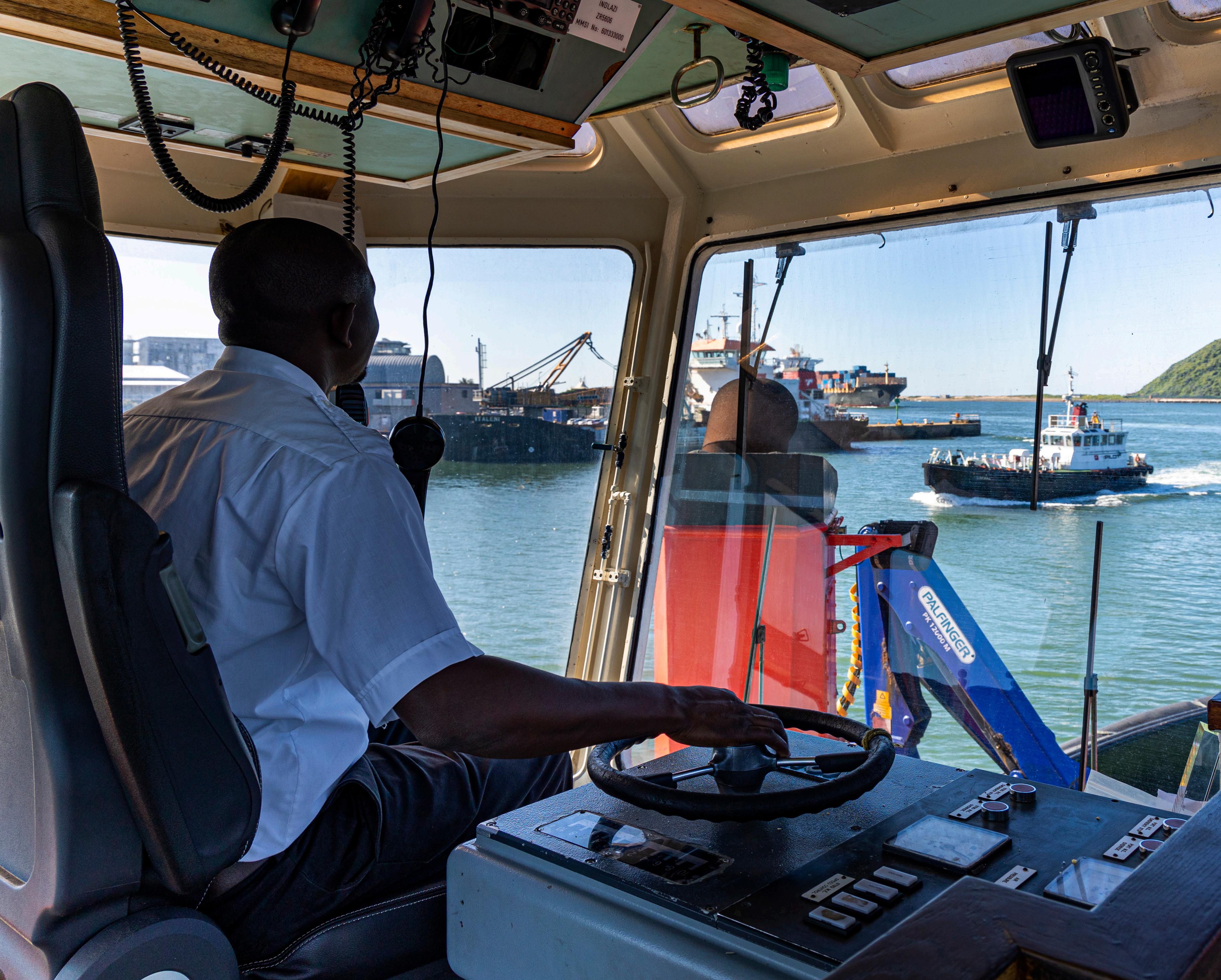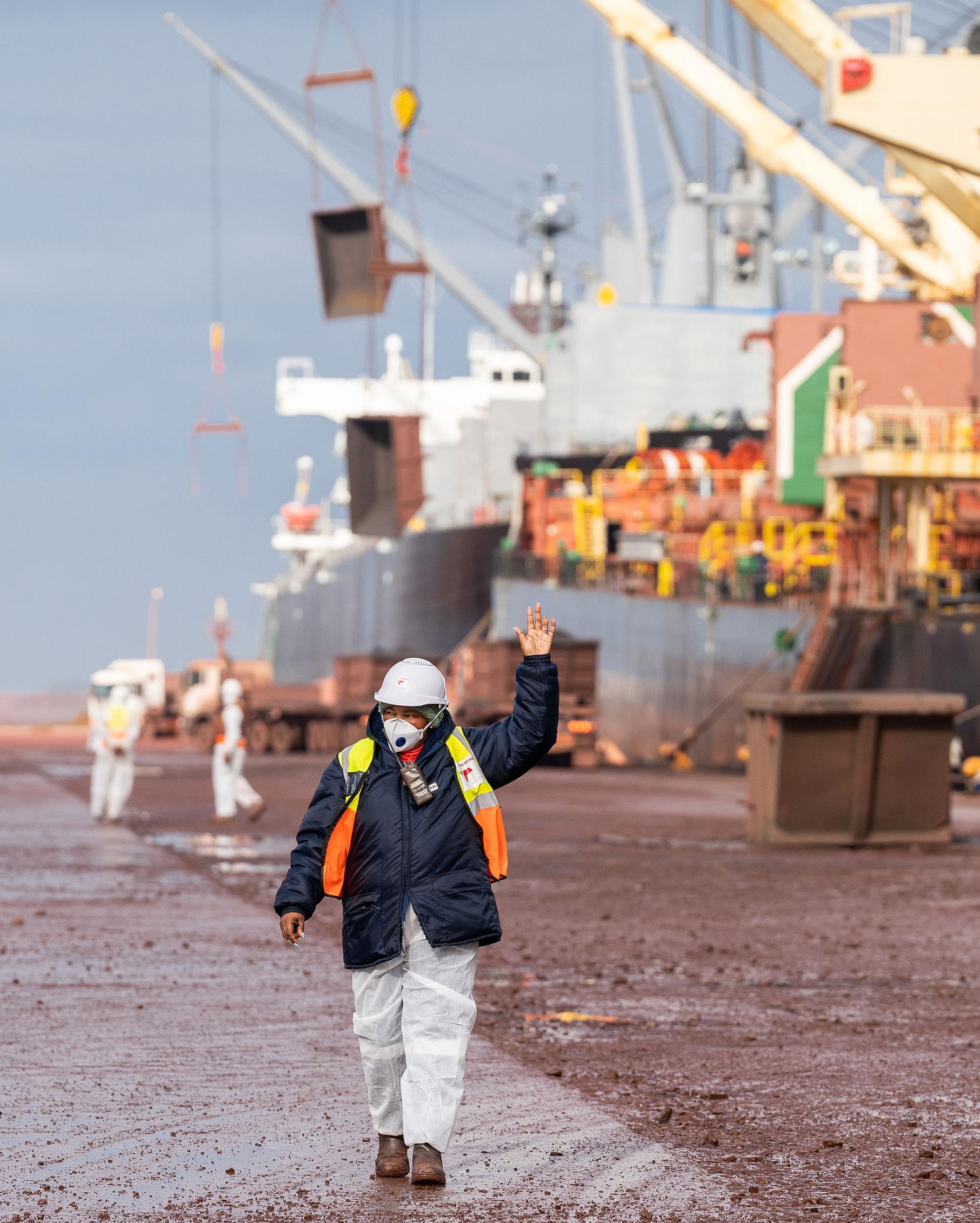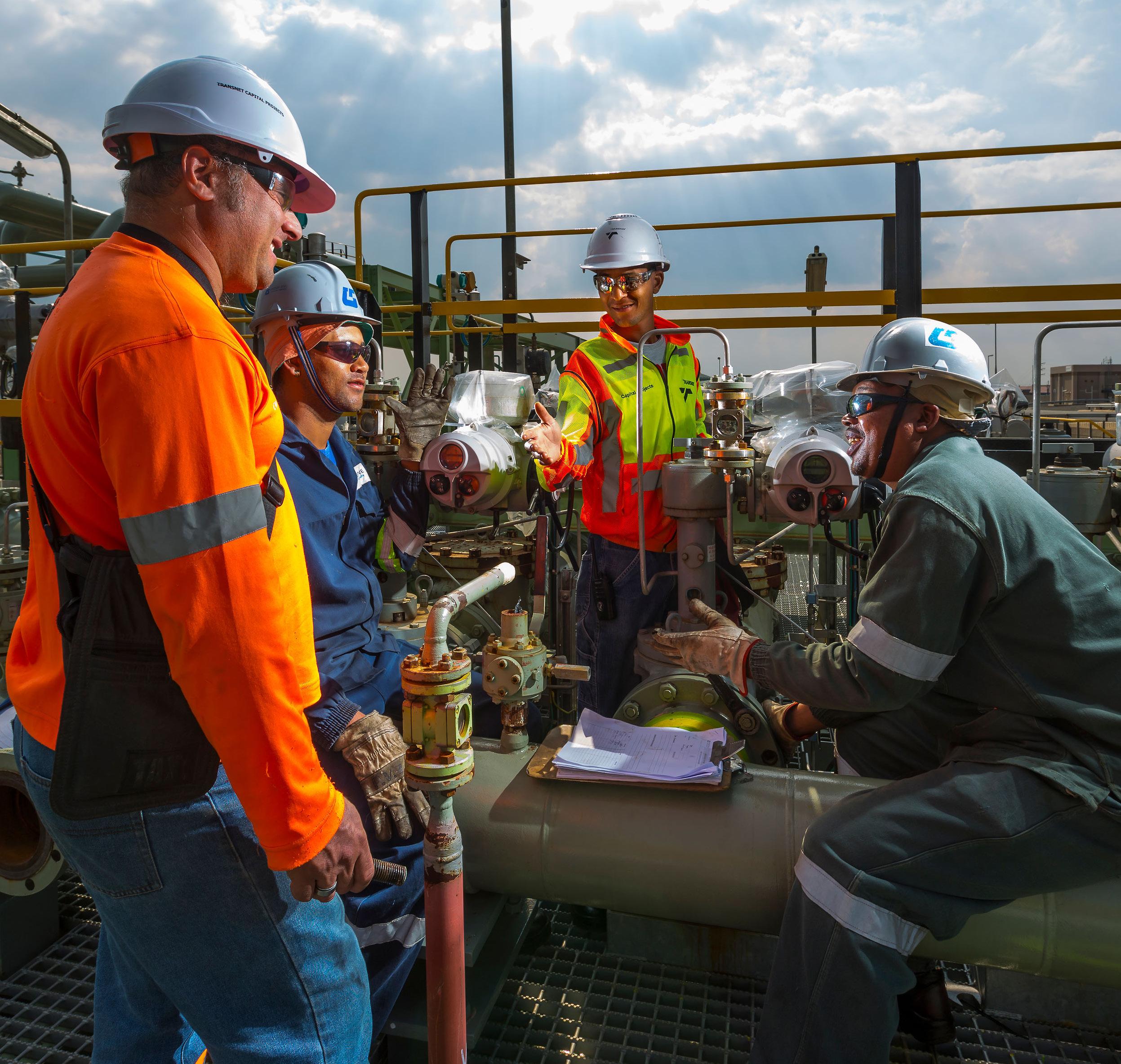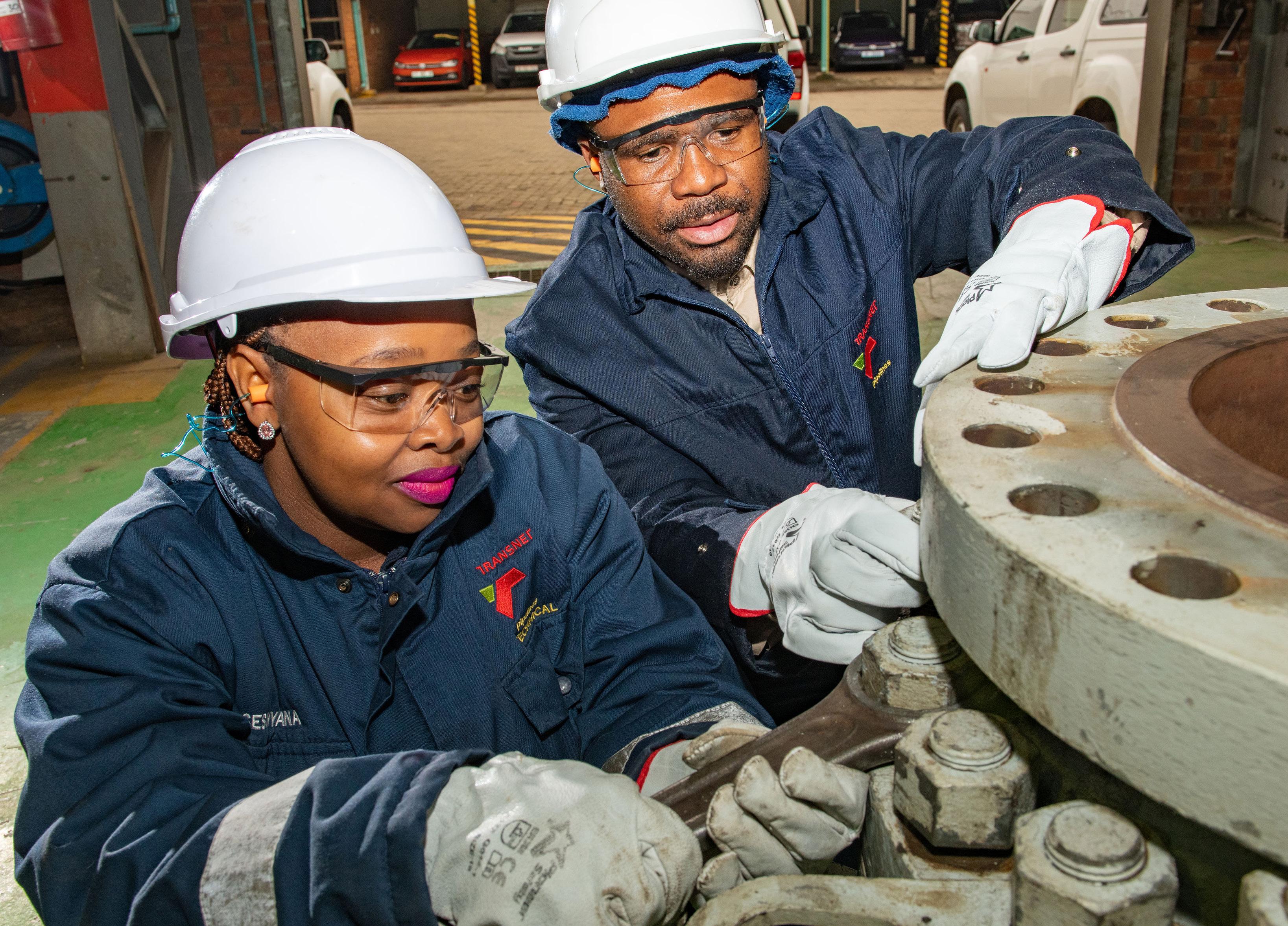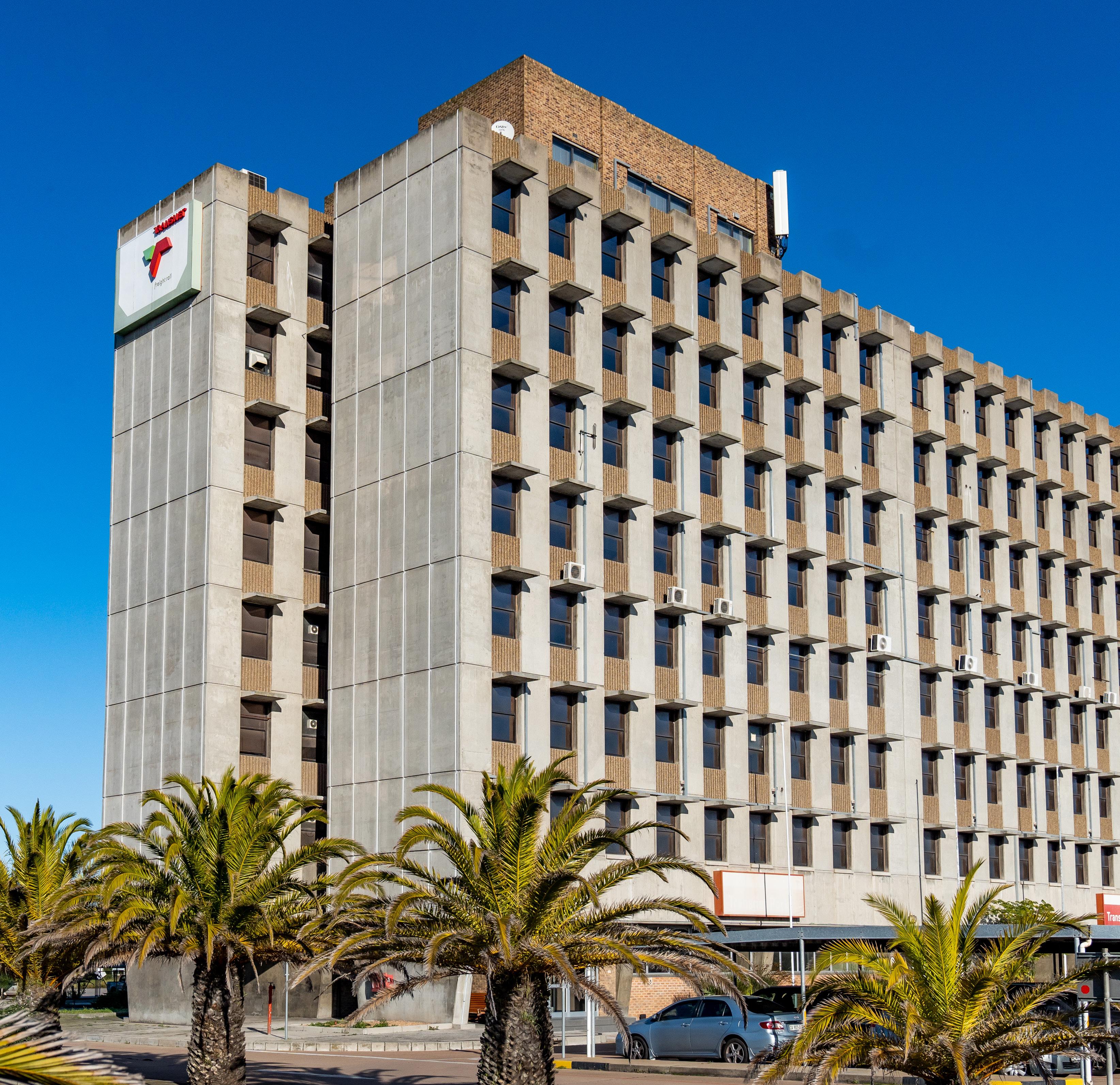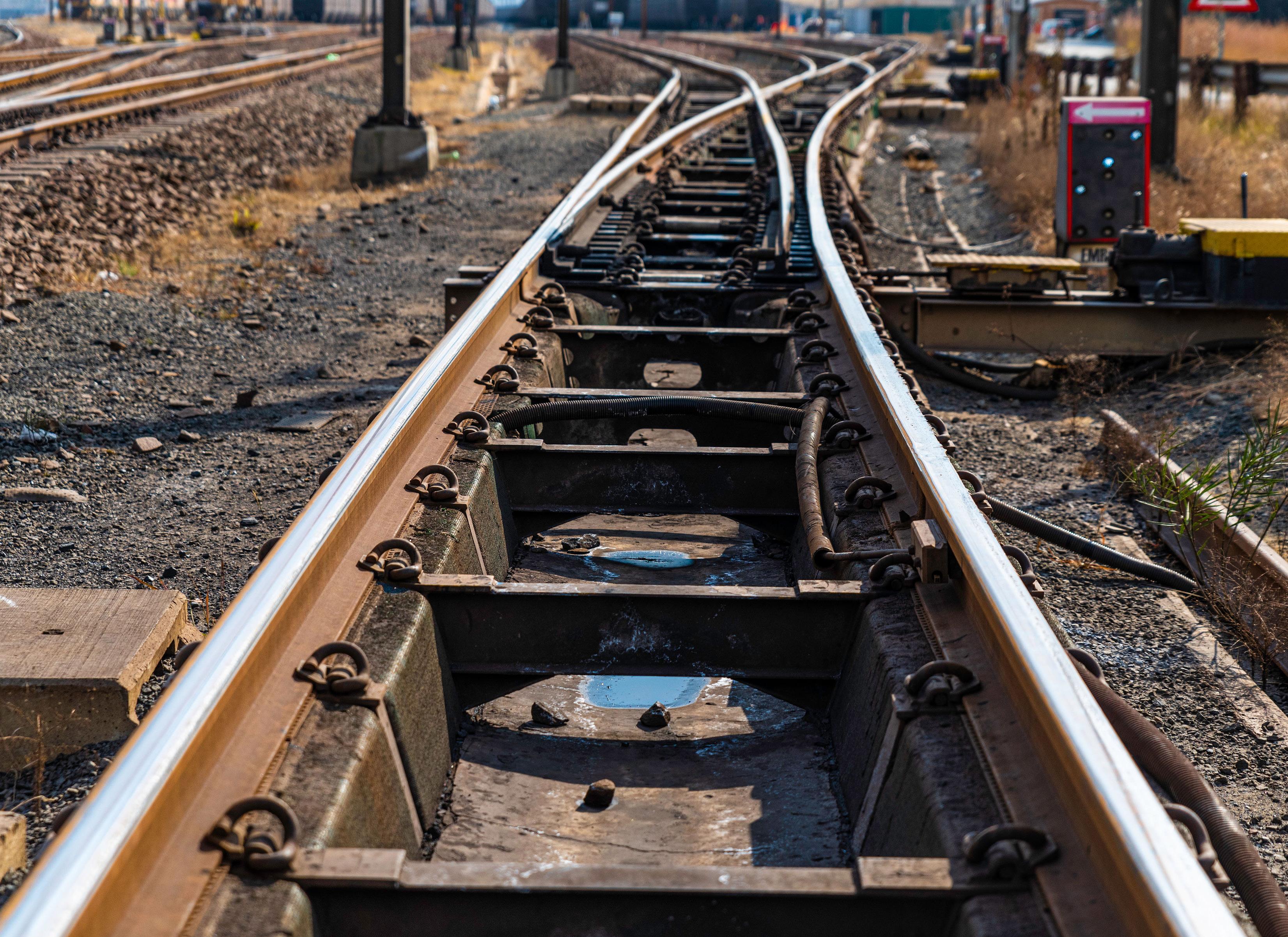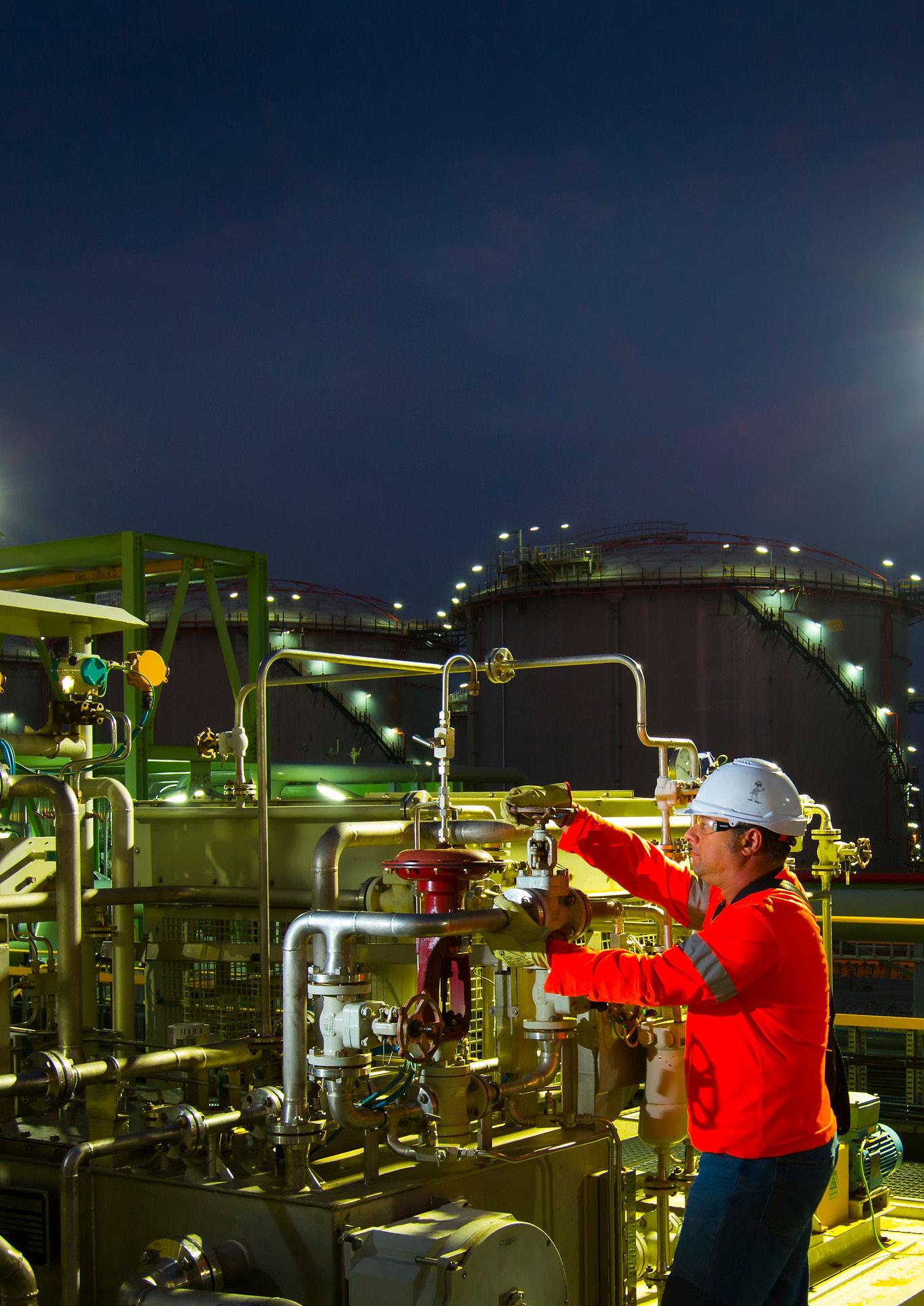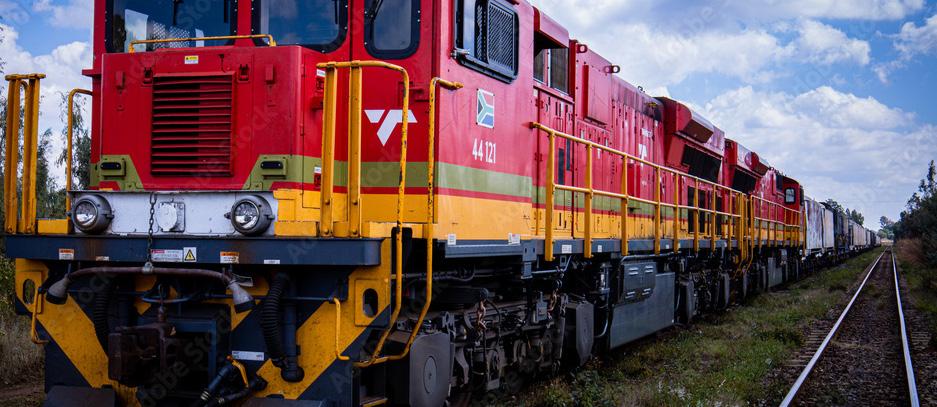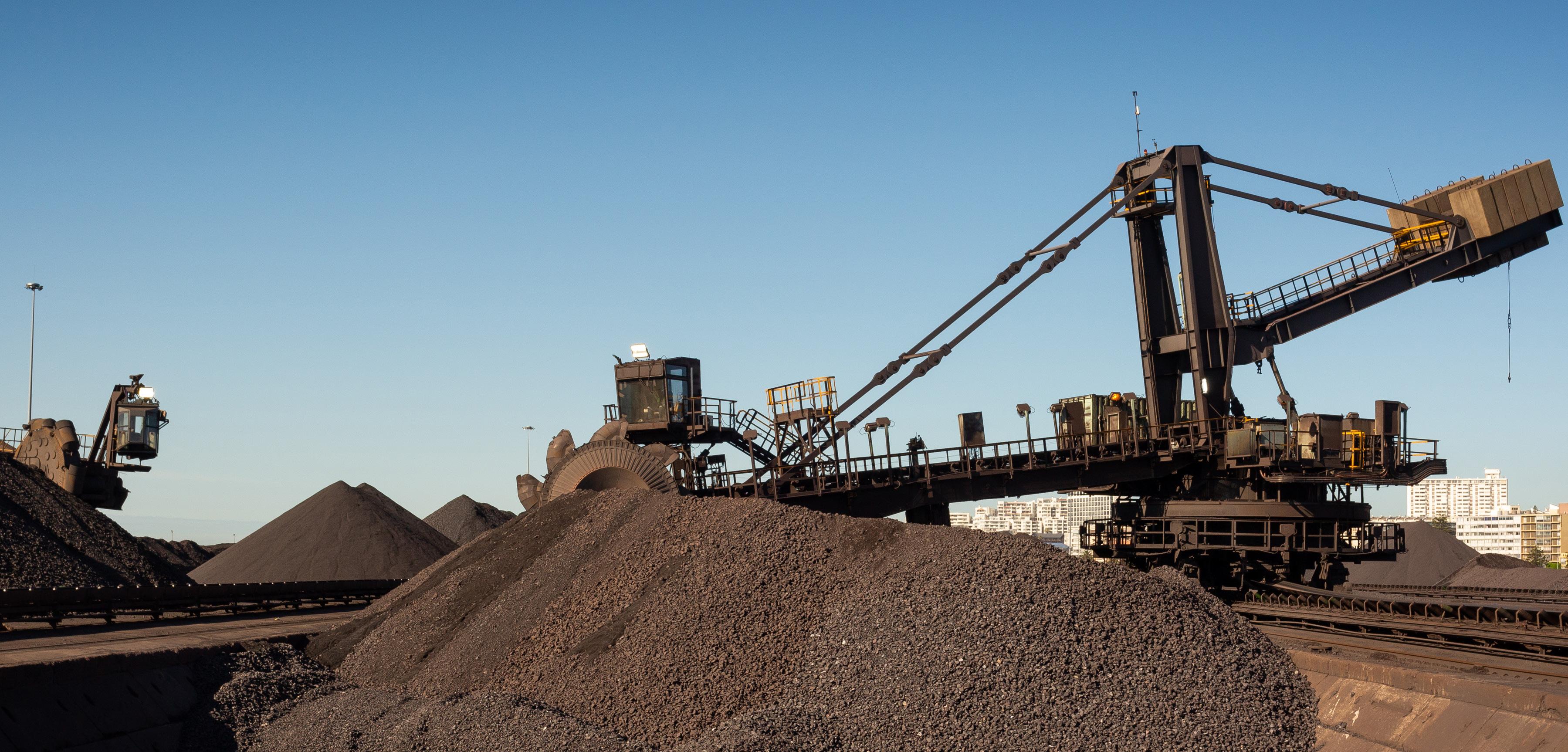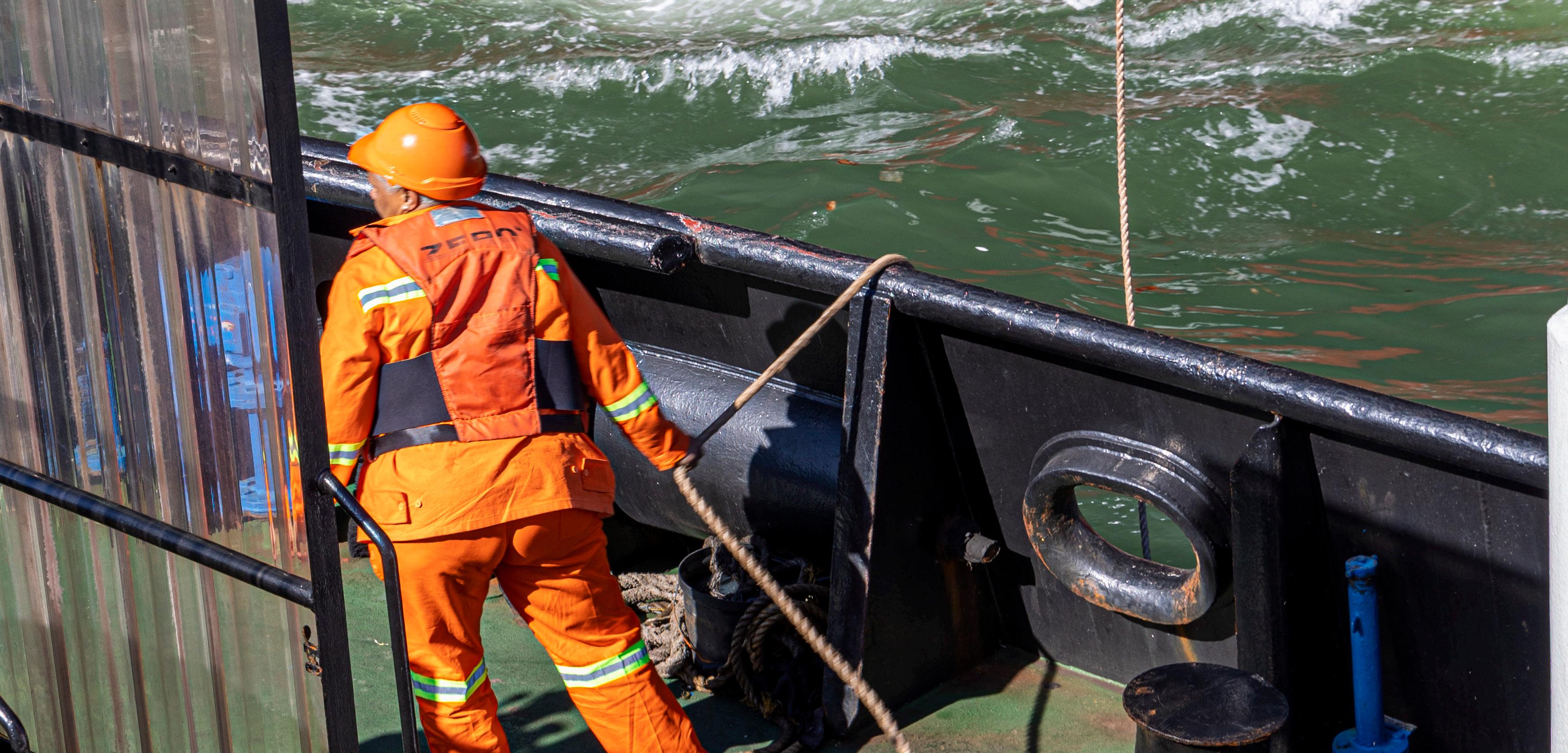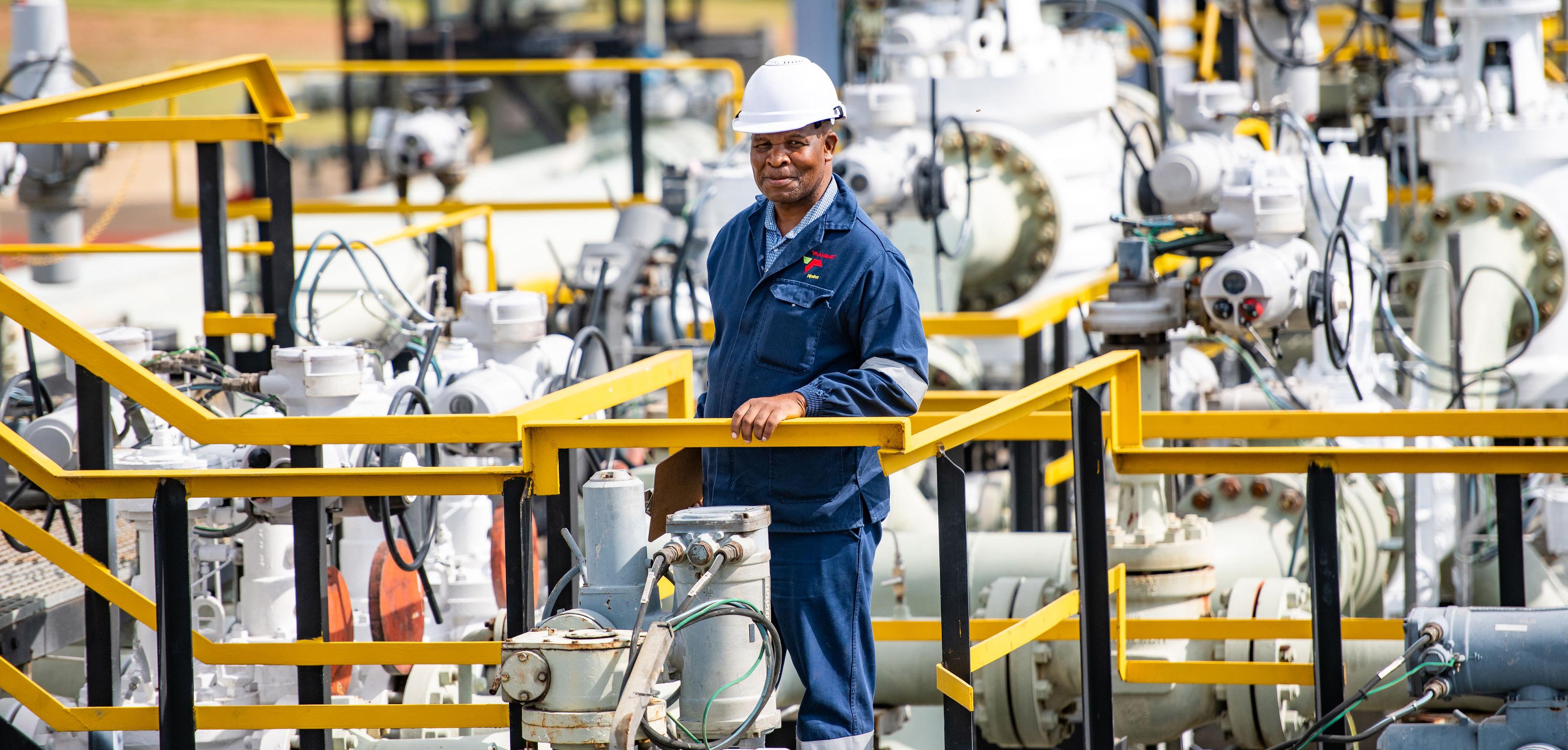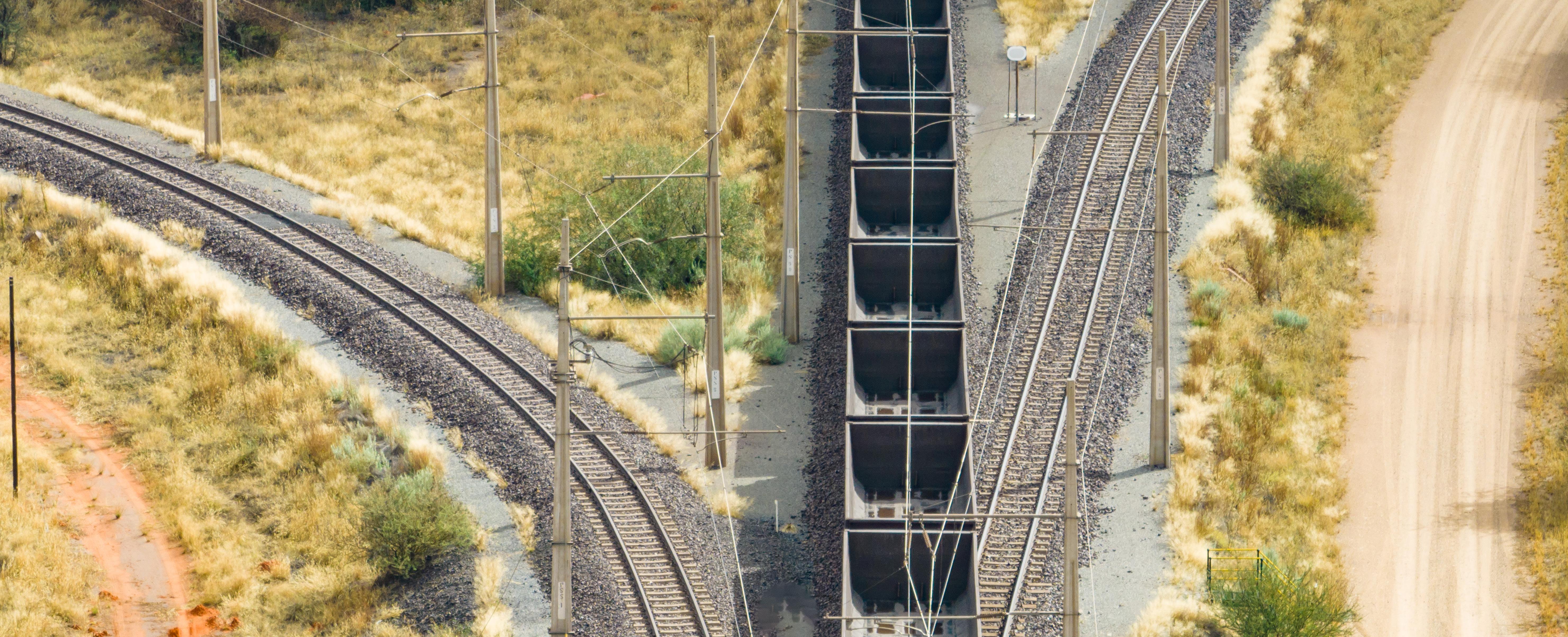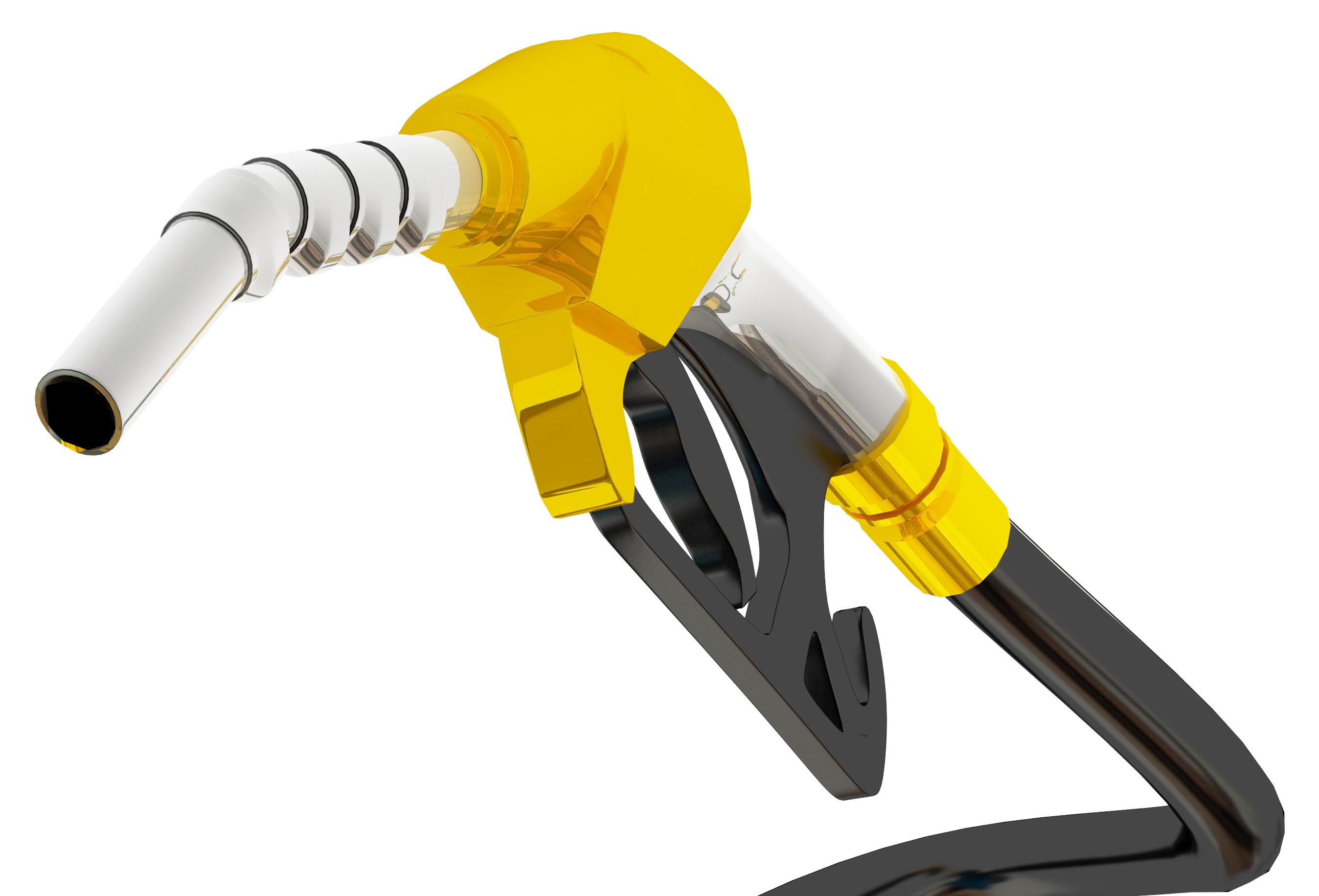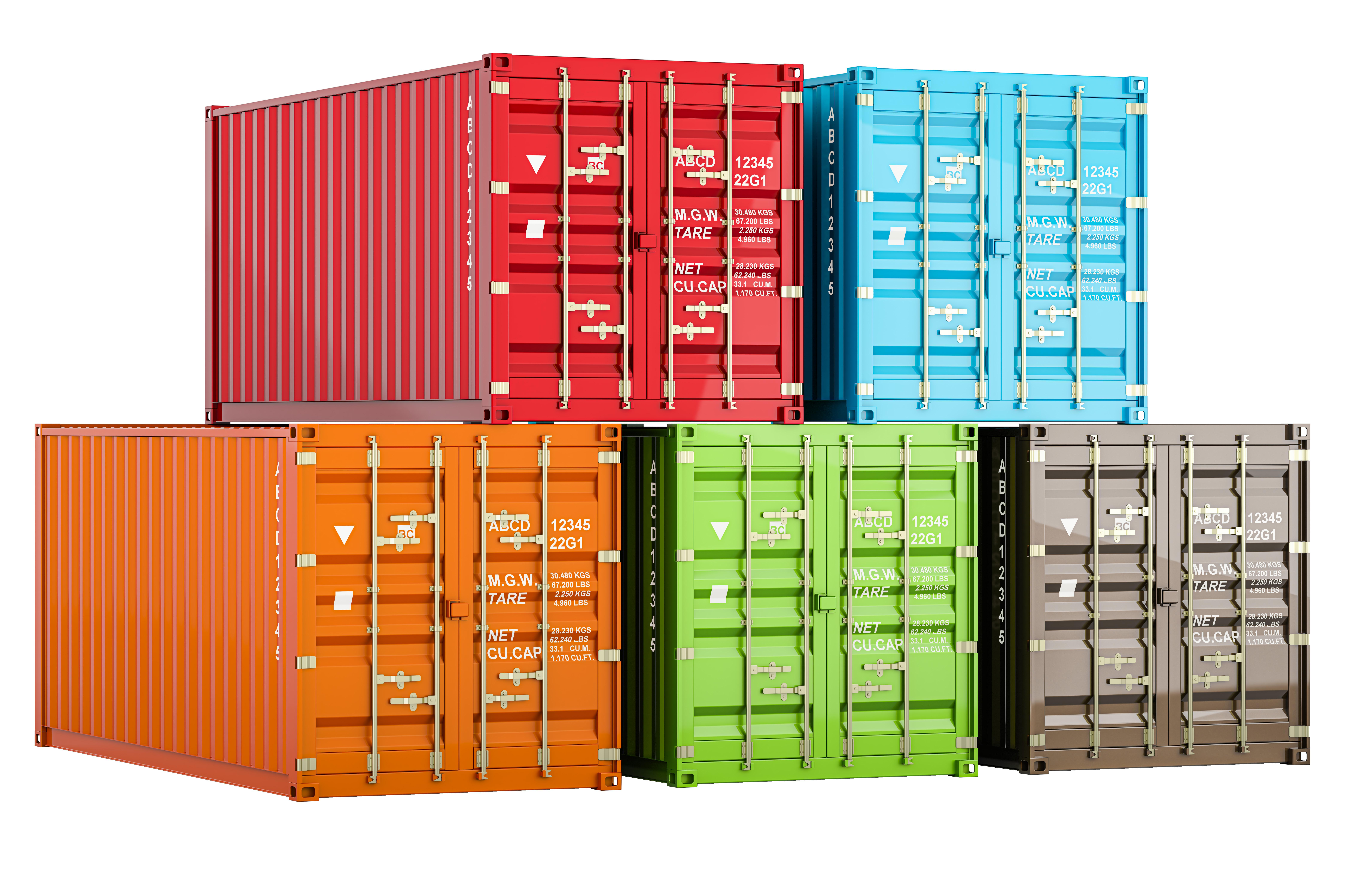VALUE PROPOSITION
1. 1.
value for the economy
• Reduce the total cost of logistics in relation to the transportable gross domestic product (GDP).
• Maximise the contribution of rail transport to the overall national transport task to facilitate and accelerate the modal shift process.
• Utilise private sector resources to assist in the provision of infrastructure and operational services.
• Integrate the South African economy with economies in the region and the rest of the world.
• Enhance the positive social and economic impact of all interventions undertaken to achieve these objectives.
• Ensure continued expansion of commercial activities and financial viability.
3.
value for domestic & regional customers
• Strive to continue delivering customer volumes that are both reliable and predictable.
• Innovations in business centred on customer needs.
• Comprehensive value chain service propositions.
• Product and service configurations customised to each market segment.
• Integrated cross-operating divisional customer support, spanning theentire logistical value chain and the lifecycle of customer requirements.
• Digital transformation across the entire value chain.
4. 3. 2. 5. 4.
2. 5.
value for suppliers and service providers
• An ethical and transparent procurement process.
• Fair and equitable tender processes.
• Fair, transparent and efficient contract management.
• A proactive and collaborative approach to local supplier development.
value for financial partners
• A strong balance sheet and the ability to generate cash flow to support further investment, ensuring continued financial stability.
• A robust ESG record, achieved through targeted investment in ESG projects and a commitment to delivering sustainable socio-economic and environmental outcomes from our commercial activities.
• Exceptional expertise in our core sectors – rail, ports and pipelines – with strong growth potential in regional markets across all modes.
• A funding strategy aligned with the strategic priorities of our segmental Reinvent for Growth Strategy.
• A business model that creates strategic value for large, burgeoning markets by reducing the cost of regional logistics infrastructure and ensuring a secure product supply.
• A reliable and credible borrower, issuing debt based on the strength of its financial position without relying on government guarantees.
value for our shareholder
• The Reinvent for Growth Strategy will contribute to broad industrial development within South Africa’s key commodity segments, thereby supporting postCOVID economic growth.
• Sustained financial returns and broad socioeconomic value.
• Regulatory compliance, accountable business practices, ethical leadership and responsible corporate citizenship.
• Investment priorities closely aligned with government’s infrastructure programme.
OPERATING DIVISIONS
freight rail
Transnet Freight Rail, the largest Operating Division of Transnet, currently manages the rail network infrastructure and operates rail services across major corridors to transport a wide variety of bulk and general freight commodities, including mining, agricultural and manufacturing goods, bulk liquids, containerised freight and automotive units and components for export, regional and domestic markets. Operating Corridors are logical units of accountability that together produce results not obtainable by the elements alone –the whole being greater than the sum of its parts. The corridors are as follows:
Cape Corridor
Ore Line
Container Corridor
Top 10
freight railways in the world and owns the largest railway in Africa.
North Corridor
North East
Central
80%
Africa’s total rail
1 500km dedicated heavy haul lines. 1200 trains running per day
Operates the award-winning luxury Blue Train.
Transnet Engineering is an integral part of South Africa’s railway and port industry value chains, serving as a provider and maintainer of the assets used in operations. The division’s core business activities include the manufacturing, remanufacturing, assembly and maintenance of railway rolling stock, such as locomotives, freight wagons, passenger coaches and port equipment. These offerings are supported by specialist engineering capabilities, including research, design, condition monitoring, testing, systems integration and certification. With more than 150 years’ experience in rail, Transnet Engineering is an independent African original equipment manufacturer (OEM) for wagons and has made significant progress in developing its OEM status for locomotives, exemplified by the manufacturing of the ‘Trans-Africa’ locomotive.
Through its Engineering unit, Transnet Engineering has researched, designed and built the Transnet Port Hauler, which is currently undergoing operational testing.
Manufacturing division of Transnet
143 depots
Core capabilities
6 main factories
in research, design, testing, manufacturing, re-manufacturing, assembly and maintenance of railway rolling stock including locomotives, freight wagons, passenger coaches and port equipment.
The division has the capacity to build and remanufacture
4 000 wagons
The division also provides products and services to customers located outside of the Republic of South Africa, including: Tanzania, Zambia and the Democratic Republic of Congo.
port terminals
Transnet Port Terminals plays a strategic role in the South African economy by enabling the efficient flow of imports, exports and trans-shipments through its cargo terminal operations.
Through its management of these key trading hubs, Port Terminals ensures year-round connectivity between the South African economy with other key trading partners in the region and the rest of the world. As a vital enabler of trade between South Africa and the global market, Port Terminals continuously strives to improve the reliability and efficiency of its operations through holistic business innovation, reducing business costs and enhancing service delivery.
16 sea cargo terminals
5 cargo sectors handled
68 berths
3 three geographical regions
Containers, mineral and agricultural bulk, break bulk and automotive (roll onroll off/RORO) namely Eastern Cape, Western Cape and KwaZulu Natal
7 commercial seaports along the South African coastline 3 inland terminals KZN, Northern Cape and North West
Transnet National Ports Authority, as prescribed in the National Ports Act, No 12 of 2005 (Ports Act), was established as a landlord port authority to manage, control and administrate safe, efficient, effective and economic functioning of the national ports system on behalf of the State.
The National Ports Authority holds a strategic position in the country’s transport logistics chain, managing South Africa’s eight commercial seaports. The ninth port, Port Nolloth, entirely leased to De Beers Consolidated Diamond Mines.
Operating within the port industry, the National Ports Authority provides services to port users, including terminal operators, shipping lines, ship agents, cargo owners and the clearing and forwarding industry.
The National Ports Authority serves as both the regulator of all port users and is self-regulated. The Ports Regulator of South Africa (Ports Regulator) exercises economic regulation over the division and addresses complaints against the National Ports Authority.
commercial seaports
2 798km coastline
Plans, provides, maintains and improves port infrastructure. Provides marinerelated services, including dredging, aids to navigation, ship repairs and marine operations.
pipelines
Transnet Pipelines is the largest multi-product pipeline operator in southern Africa, with more than 55 years’ experience in operating and maintaining a 3 800 kilometre high-pressure petroleum and gas pipeline network in South Africa.
The core strategic mandate of Transnet Pipelines is to ensure petroleum security of supply for the inland market and gas security of supply for the KwaZulu-Natal market, using environmentally responsible methods while ensuring optimum efficiencies.
The liquid fuels network traverses various provinces in South Africa. The network includes a tank farm in Tarlton with a capacity of 30 million litres, which is used primarily for storage and distribution of liquid fuels to Botswana. The gas pipeline, a converted line previously used for liquids, runs from Secunda to Durban via Empangeni.
Transnet Pipelines is strategically positioned to enable regional integration from pipelines to other modes of transport. It is regulated by the National Energy Regulator of South Africa (NERSA).
Transnet Rail Infrastructure Manager (TRIM) is a key player in managing South Africa’s vast rail network, which spans 30 400 kilometres. Established under the National Rail Policy and the Economic Regulation of Transport Act, 2024, TRIM is responsible for ensuring the country’s rail infrastructure is reliable, efficient and well-maintained. Its mission is to connect people, businesses and regions, supporting economic growth and regional trade.
TRIM manages a core network of 9 875 route kilometres, which includes vital heavy-haul lines for transporting goods like iron ore and coal. The Sishen-Saldanha line (iron ore export) and ErmeloRichards Bay line (coal export) are built to carry heavy loads of up to 30 tons/axle and 26 tons/ axle, respectively. The network also includes branch lines with axle loads of up to 20 tons/axle, connecting smaller regions and communities.
TRIM plays a crucial role in connecting South Africa’s ports, terminals and production hubs, especially in the SADC region. It supports landlocked countries by providing essential rail links, promoting regional trade and economic growth. TRIM’s mission is to empower seamless rail connectivity through reliable, intelligent and resilient infrastructure management. By ensuring safe, efficient and affordable rail operations, TRIM drives economic growth, supports regional connectivity and fosters sustainable development.
government
TRIM aligns with national policies by providing sustainable rail infrastructure that supports economic growth.
train operators
TRIM offers a reliable and regulated network, enabling efficient and profitable operations. exporters
TRIM facilitates cost-effective, highvolume transport for heavy-haul commodities, boosting South Africa’s trade economy.
communities
TRIM strengthens local economies by improving transport infrastructure and creating jobs.
investors
TRIM provides opportunities for partnerships in upgrading and modernising rail infrastructure to meet global standards.
environmental stewardship
Carbon footprint: 3,27 mtCO2e
Cumulative carbon emission savings from ‘road to rail’ from 2015 to 2022: 3 122 mtonCO2
01. 05. 02. 06. 03. 07. 04. 08.
skills development
1 229 trainees were trained at Transnet schools (2021: 1 396), surpassing the 1 105 annual target R655 million was spent on skills development
22,11 B-BBEE skills development points achieved – retaining Transnet’s Level 2 B-BBEE status.
health and safety
LTIFR rate – 0,69 (2021: 0,62) against tolerance of 0,75
Running line derailments: 78 (2021:70)
Shunting derailments: 121 (2021: 122)
Employee Wellness Programme service offerings across all 11 official South African languages
building industrial capability
R67 million in ESD spend, 2,1% of net profit after tax.
R378 million early payments to qualifying ESD beneficiaries (2021: R70,1 million)
Local procurement spend accounted for 72% designated sector spend (2021: R2,2 billion; 9,4% of TMPS)
creating employment
Transnet’s total headcount 50 015 (incl. contract employees)
4 620+ temporary jobs created through Phelophepa I and II
R7,7 million+ was invested in job creation efforts in communities hard hit by unemployment
community development
Invested R139,56 million in community development
Phelophepa
Healthcare Trains I and II treated 344 362 patients in 70 communities
Approximately 33 856 citizens were vaccinated against COVID-19 through the Transvaco vaccine train.
*Source: Transnet 2024 Integrated Report
transformation employment equity
Black employees: 78,6% of total employees
Women in Exco: 44% and 47,4% at extended Exco
People with disabilities 2,3% of employees
Professional Corps
Black employees: 3 375
Skilled Corps
Black employees: 15 577
transformation b-bbee spend
Black-owned enterprises spend accounts for R12,55 billion
Black women-owned enterprises spend: R7,41 billion
EME spend at R5,14 billion
QSE spend at R2,91 billion
Black youth enterprises at R1,83 billion.
INTEGRATING REGIONAL FREIGHT
group business development strategic focus areas
Business development’s core function is to retain and grow Transnet’s customer base while increasing the revenue-generating capabilities. This is achieved through existing markets and diversified business growth initiatives. What sets Transnet apart is our ability to offer an integrated freight and logistics service. Our internal collaboration and integrated approach are what create the most value and impact for our customers.
STRATEGIC INTENT
1.
Developing new business opportunities through strategic transactions and partnerships.
2.
Strategic building and maintaining good relations with government, business communities and other stakeholders.
3.
Enhancing service delivery and customer satisfaction by fostering a customer-centric culture across the value chains.
GROUP BUSINESS DEVELOPMENT & GROWTH STRATEGY
The Group Business Development strategy for growth and diversification is designed to position Transnet for sustained revenue growth and market expansion by leveraging strategic partnerships, optimising asset utilisation and enhancing customer-centric service delivery. Business Development aims to drive significant value creation for Transnet and its stakeholders.
group business development growth strategy summary
existing presence
Leading the development of integrated regional freight systems by leveraging Transnet’s unique position as a leading logistics provider in sub-Saharan Africa.
Growing volumes by supporting regional integration through leveraging shared hinterlands and rail corridor connectivity.
Jointly developing rail and maritime trade corridors in support of the African Continental Free Trade Area model. This involves cross-border cooperation, government-to-government agreements and long-term trade and growth opportunities.
Strategic port and maritime trade corridors: Significant opportunities exist in the rest of sub-Saharan Africa, aligned with the AfCFTA model of cross-border cooperation, G20 agreements and long-term growth prospects.
Regional operations, joint ventures and partnerships with aligned growth synergies such as shipping lines, private local operators, key commodity customers and stateowned rail, port and pipeline operators, will present new opportunities on the continent.
“SA Incorporated”: Promoting South African content and positioning with ‘SA Inc’ partners to pursue regional opportunities. This include collaborating with South African DFIs, IDZs and agencies to leverage project development funding.
GOALS & ASPIRATIONS
Business Development Growth and Diversification aims to grow Transnet’s revenue from domestic and into new markets.
1.
cross border volumes maputo, north south & east-west corridors
• Focus on three rail corridors,
• Set up joint-operating centres,
• Increase cross-border rail volumes.
2.
leasing of rolling stock
• Demand for rolling stock in Africa is increasing,
• There is also a corresponding need for maintenance services for locomotives & wagons.
3.
strategic partnerships
The introduction of PSPs represents an opportunity,
• to develop partnerships that provide access capital and other resources and,
• capabilities to meet customer needs while simultaneously building a sustainable and competitive business into the future.
Democr atic Republic of Cong o
Pa rt icip at ion in SA In c. Conso rt ium in rail and po rt oppor tu nities
Be niSA P hase I I
Techni ca l cooperat ion ag reemen t at the Por t of Coto no u Leasing of rollin g stoc k
GABC ON Termina l (JV ) Botswana Rail Li nk
Collaborat ion on termina l operat ions Port dredgin g
Collaborat ion with Keny a Railways
Mozambiqu e Zimbabwe
Collaborat ion with MPDC and CFM Port dredgin g
Leasing of rolling s tock
Nort h Sout h Corridor
Optimise , rehabilitate and upgrade th e No rt h-Sout h Corr idor to fa cilita te in tra- Afr ica trad e as p ar t of SAR A
